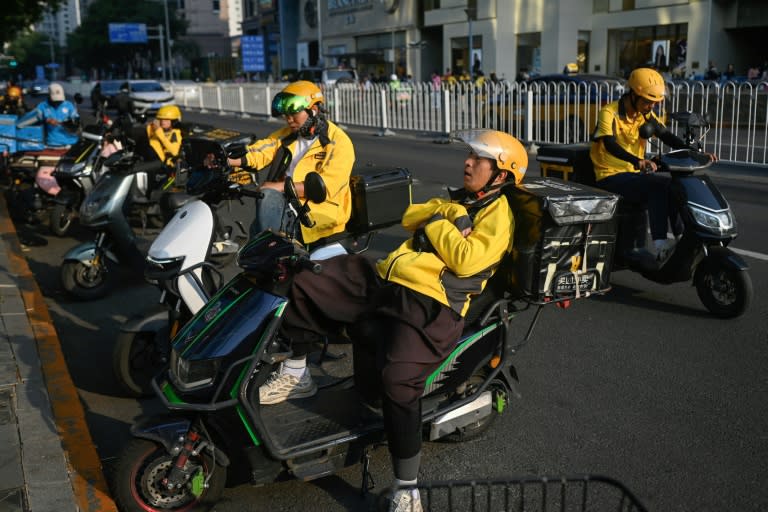CashNews.co

Investors and analysts expect China to unveil billions of dollars in new stimulus for its troubled economy Saturday as officials battle multiple headwinds including a prolonged housing crisis and sluggish consumption.
Authorities last month announced several stimulus policies — from interest rate cuts to looser home-buying rules — after struggling to reignite growth and business activity since ending Covid health curbs in late 2022.
The moves lit a fire under mainland and Hong Kong stock markets on renewed hopes that officials would finally get a grip on the issues that have dogged the economy for years, particularly a debt crisis in the crucial property sector and weak consumer sentiment.
All eyes will be on a news briefing by Finance Minister Lan Fo’an at 10 am (0200 GMT) on Saturday, when he is expected to disclose much more substantive fiscal support for the economy.
Details are scarce, but analysts and investors polled by Bloomberg said they expected two trillion yuan ($283 billion) in stimulus to be announced, which would be Beijing’s biggest support programme since the bazooka during the global financial crisis.
Gary Ng, senior economist for Asia Pacific at Natixis, told AFP he thought Beijing would unveil “two to three trillion yuan of ultra-long government bond issuance”.
“Any amount smaller than this will cause disappointment in the market again,” he stressed, referring to a slump in stock prices this week following a briefing Tuesday that failed to announce any new measures.
Measures would likely be directed at “real estate, consumption and infrastructure”, Ng said.
Beijing has said Lan will use Saturday’s briefing to outline “countercyclical adjustment of fiscal policy to promote high-quality economic development”.
Shanghai’s main bourse closed down 2.6 percent Friday afternoon. Hong Kong was closed for a public holiday.
– ‘The stakes are high’ –
“I think they will send a positive signal to the market, a very decisive fiscal policy to help the economy to stabilise,” said the Economist Intelligence Unit’s Yue Su, who forecast up to three trillion yuan in help.
Experts hope Chinese officials may now be in a “whatever it takes” moment — a reference to former European Central Bank chief Mario Draghi’s pledge to save the eurozone during the 2010s debt crisis.
“The stakes are high — most observers agree that recent stimulus announcements won’t amount to much unless backed up by fiscal support,” said Julian Evans-Pritchard, head of China economics at Capital Economics, in a note.
“Three factors will be key in determining the impact of stimulus: its scale, where it’s channelled, and how soon it’s deployed,” he said.
Analysts for months have urged Beijing to unleash another “bazooka” to get the economy moving and restore confidence.
Beijing last month slashed interest on one-year loans to financial institutions, cut the amount of cash lenders must keep on hand and pushed to lower rates on existing mortgages.
And the central bank this week boosted support for markets by opening up tens of billions of dollars in liquidity for firms to buy stocks.
Beijing said the “swap facility” — worth 500 billion yuan — would encourage “the healthy and stable development of the capital market”.
mya-isk-oho/dan
